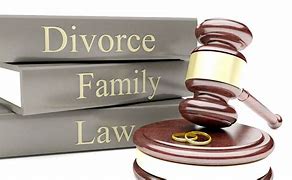Title: Navigating the Legal Waters: A Comprehensive Guide to Divorce Law and Finding the Right Lawyer in the USA
Divorce is a complex and emotionally challenging process that requires careful navigation of legal waters. In the United States, each state has its own set of laws governing divorce proceedings, making it essential to understand the relevant statutes and procedures applicable to your case. Moreover, finding the right divorce lawyer can make a significant difference in the outcome of your divorce, providing invaluable guidance, advocacy, and support during this difficult time. In this comprehensive guide, we’ll explore the intricacies of divorce law in the USA, discuss the role of a divorce lawyer, and offer guidance on how to choose the right attorney for your needs.
Understanding Divorce Law in the USA
Divorce, also known as dissolution of marriage, is the legal process of ending a marriage relationship. While the specific requirements and procedures may vary by state, several common elements characterize divorce law in the USA:
1. Grounds for Divorce
States typically recognize both fault and no-fault grounds for divorce. Fault-based grounds may include adultery, cruelty, abandonment, or substance abuse, while no-fault grounds typically involve irreconcilable differences or an irretrievable breakdown of the marriage.
2. Residency Requirements
Most states require either or both spouses to meet residency requirements before filing for divorce. These requirements vary by state but generally involve establishing domicile or residency for a certain period, ranging from a few months to a year.
3. Division of Marital Property
In divorce proceedings, marital property, including assets and debts acquired during the marriage, must be divided equitably or equally, depending on the state’s laws. Separate property, such as assets owned before the marriage or received as gifts or inheritances, is typically excluded from the division.
4. Child Custody and Support
If the divorcing couple has children, issues of child custody, visitation, and support must be addressed. Courts prioritize the best interests of the child when determining custody arrangements and support obligations, aiming to ensure the child’s well-being and welfare.
5. Spousal Support (Alimony)
In some cases, one spouse may be entitled to receive spousal support or alimony from the other spouse, particularly if there is a significant disparity in income or earning capacity. The duration and amount of alimony payments vary based on factors such as the length of the marriage, each spouse’s financial needs, and the standard of living during the marriage.
The Role of a Divorce Lawyer
A divorce lawyer plays a critical role in guiding clients through the divorce process and advocating for their legal rights and interests. Some key functions of a divorce lawyer include:
1. Legal Advice and Guidance
A divorce lawyer provides legal advice and guidance on matters such as grounds for divorce, property division, child custody, support obligations, and other relevant issues. They help clients understand their rights and options under the law, empowering them to make informed decisions.
2. Negotiation and Mediation
Many divorce cases are resolved through negotiation or mediation rather than litigation. A skilled divorce lawyer negotiates on behalf of their client to reach mutually acceptable agreements on issues such as property division, child custody, and support. They strive to achieve fair and equitable outcomes while minimizing conflict and emotional distress.
3. Court Representation
In cases where litigation is necessary, a divorce lawyer represents their client’s interests in court proceedings. They prepare legal documents, present evidence, cross-examine witnesses, and argue legal issues before the judge, advocating zealously for their client’s rights and objectives.
4. Legal Document Preparation
Divorce involves extensive paperwork, including petitions, motions, financial disclosures, and settlement agreements. A divorce lawyer assists clients in preparing and reviewing these documents to ensure accuracy, completeness, and compliance with legal requirements.
5. Emotional Support
Divorce can be emotionally taxing, and a compassionate divorce lawyer provides not only legal guidance but also emotional support and understanding during this challenging time. They listen to their clients’ concerns, address their questions and fears, and offer reassurance and empathy throughout the process.
Finding the Right Divorce Lawyer
Choosing the right divorce lawyer is crucial to achieving a favorable outcome in your divorce case. Here are some factors to consider when selecting a divorce lawyer:
1. Experience and Expertise
Look for a divorce lawyer with substantial experience and expertise in family law and divorce cases. Consider their track record of success, reputation in the legal community, and familiarity with the local court system and judges.
2. Communication and Compatibility
Effective communication and rapport between you and your lawyer are essential. Choose a divorce lawyer who listens attentively to your concerns, communicates clearly and promptly, and makes you feel comfortable and confident in their abilities.
3. Approach and Strategy
Discuss the lawyer’s approach and strategy for handling your case. Evaluate whether their approach aligns with your goals and preferences, whether you prefer a collaborative, amicable approach or a more assertive, adversarial strategy.
4. Fees and Billing Structure
Understand the lawyer’s fee structure and billing practices upfront. Inquire about their hourly rates, retainer fees, and any additional costs associated with your case. Ensure that you are comfortable with the fee arrangement and that it fits within your budget.
5. Client Reviews and References
Research the lawyer’s reputation and client reviews online. Ask for references from past clients or colleagues who have worked with the lawyer to gain insights into their professionalism, effectiveness, and client satisfaction.
Conclusion
Divorce is a significant life transition that requires careful consideration of legal, financial, and emotional factors. By understanding the complexities of divorce law in the USA, recognizing the role of a divorce lawyer, and following guidelines for selecting the right attorney, you can navigate the divorce process with confidence and clarity. A skilled and compassionate divorce lawyer can provide invaluable support and advocacy, guiding you through the legal proceedings and helping you achieve a favorable resolution to your divorce case. With the right legal representation and support, you can move forward with your life and begin the next chapter on solid ground.
